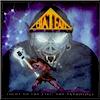Band
Denner-Sherman
Title
Masters Of Evil
Type
LP/EP
Company
Metal Blade
YOR
2016
Style
Traditional
Popular Reviews
Composed very competently but predictably

Mercyful Fate's Hank Shermann and Michael Denner are pretty much my favorite guitar duo in metal- yes, even ahead of Tipton and Downing or Murray and Smith. So, the news that they were working together after years with very little shared activity was enough to get my attention. Their debut EP, Satan's Tomb, however, wasn't quite the unadulterated thrill I had been hoping it could be. Yes, the songcraft and guitar work were very much in keeping with the tradition established on those two classic Mercyful Fate albums (plus EP and early demos), and vocalist Sean Peck definitely had a command of metal vocal technique that, in theory at least, should satisfy those who loved King Diamond's multi-octave vocal theatrics on the early MF material. And while it is indeed still a pleasure to hear Denner and Shermann's distinctive interplay, and that EP superficially did deliver the goods, I found something vaguely unsatisfying about it. Specifically, the songs were composed very competently but predictably; and the same could be said of both Peck's vocals and his lyrics: competent, but fairly predictable. And kind of cheesy, with Peck making what sounded like an overly self-conscious effort to write in a style that mimicked the controversial Satanic musings of the King without explicitly expressing love for the lord of evil. And let's be honest, Fate fans: was that not the one significant weakness of the band's early material (and, to a lesser degree, the band's post-reunion albums in the '90's)? So, basically, the best and worst thing about Satan's Tomb was it's not-so-subtle and clearly intentional nods to Hank and Mike's early musical triumphs, both in musical and lyrical content. And, in my opinion, some of Peck's vocal antics were just too much. Finally, the production was technically well done, but with a guitar sound that I found kind of over-compressed and inappropriately modern.
So, how does Masters Of Evil fare by comparison? Better overall, but not to a huge degree. Peck is still Peck, and still frequently preoccupied with all things hell-related; the band's namesake axemen haven't really changed their approach in comparison to the EP; and bassist Marc Grabowski and sometime MF drummer Snowy Shaw likewise do things in keeping with the Fate tradition. (Mainly latter day Fate in Shaw's case, given that he isn't as prone to wild fills and general chaotic spontaneity as '80's era MF drummer Kim Ruzz.) So basically, there are no major changes here, but the reservations that I (and apparently a few others) had about Satan's Tomb have been addressed somewhat here--about as much as the band can do so without rocking the boat, anyway. Peck occasionally takes very welcome breaks from the fairly ridiculous Satan-mongering he seems to feel the need to engage in, a change most obvious on "The Wolf Feeds At Night," where he also tries on a vaguely Ozzy-like vocal tonality that is a similarly welcome change of pace for him. And Hank and Mike delve a little deeper into their bag of tricks than on the EP, with a couple of songs boasting tasteful, melodic leads over slow passages (typical of Denner), and one of them (Shermann?) breaking out a lick that sounds like it uses a bit of Van Halen-style finger tapping on album closer "The Baroness" (a song that features a rather strange twist on the usual Hell-related lyrical themes). And even when a song is otherwise fairly predictable in construction, the Danish axe duo will throw in some small but significant bit of guitar craft that takes it up a notch, like the tricky, finger-knotting riffery that closes the otherwise fairly standard Fate-style album opener "Angel's Blood" or the brief but tasty harmonized lead line in the aforementioned "The Wolf Feeds At Night." And while much of the album relies on the sort of complex but simultaneously tradition-based riff mazes that Shermann in particular has always been known for composing, there is the odd surprise that makes the album more interesting, like the fairly straightforward but super-groovy, swinging groove that propels "Servants Of Dagon." And Peck seems to have toned down his more extreme vocal antics just enough to prevent them from grating like they sometimes did on the debut EP, while occasionally trying on a slightly different vocal technique (lots of eerie, choir-type backing vocals, for example).
Basically, what it all boils down to is that all involved seem to do their best when they step out of the box they (somewhat understandably) seem to feel they are expected to stay in. They don't take any huge stylistic risks, but in my opinion, the slight and occasional steps outside of the band's comfort zone make for some of the album's strongest moments, saving it from stumbling and falling in the face of the imposing legacy it attempts to uphold. I strongly suggest that the band experiment further with these sorts of stylistic tweaks in the future, because I definitely like what it does for their sound when attempted here. The band's talents are clearly established, and as enjoyable as most of this album is, it will probably not be remembered as a classic on par with those first two full-lengths from Mercyful Fate. On one hand, it's great to hear these guitarists working with some talented bandmates to continue the tradition of their former band. But on the other hand, anything that steers so close to Mercyful Fate's sonic territory without BEING Mercyful Fate can make one pine even more for the real thing, rather than savor what's being offered in its stead. Hence my suggestion that the band try further exploring some of the less predictably Fate-style elements occasionally found here, so that the band may find a reason to exist beyond fans' desire for something it can never quite be.
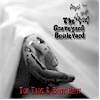 (Independent)
(Independent)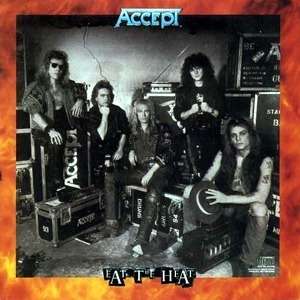 (Epic Records)
(Epic Records)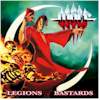 (Century Media)
(Century Media) (Nuclear Blast)
(Nuclear Blast) (Atlantic)
(Atlantic) (High Roller)
(High Roller)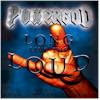 (Massacre)
(Massacre) (Metal Blade)
(Metal Blade) (Iron Works Records)
(Iron Works Records) (Killer Metal)
(Killer Metal) (Dead Line)
(Dead Line) (Steamhammer)
(Steamhammer) (SPV/Steamhammer)
(SPV/Steamhammer)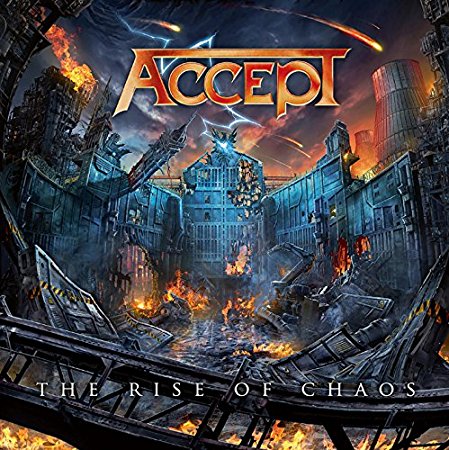 (Nuclear Blast)
(Nuclear Blast)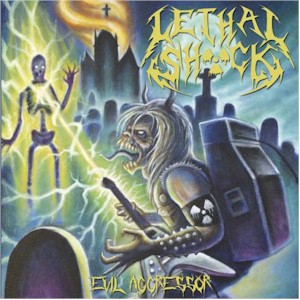 (Witches Brew)
(Witches Brew) (Pure Steel)
(Pure Steel)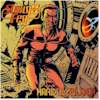 (Cruz Del Sur)
(Cruz Del Sur)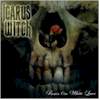 (Magick Records)
(Magick Records) (AFM)
(AFM) (Prosthetic)
(Prosthetic) (My Graveyard)
(My Graveyard) (Marquee)
(Marquee)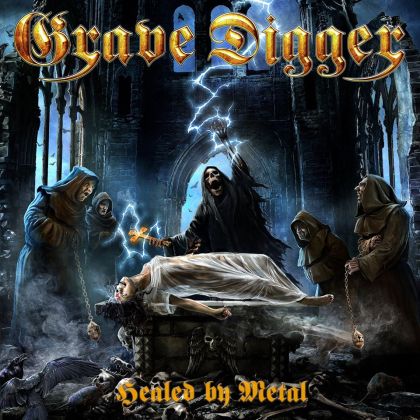 (Napalm)
(Napalm) (Fighter)
(Fighter) (Shadow Kingdom)
(Shadow Kingdom) (Massacre)
(Massacre)



